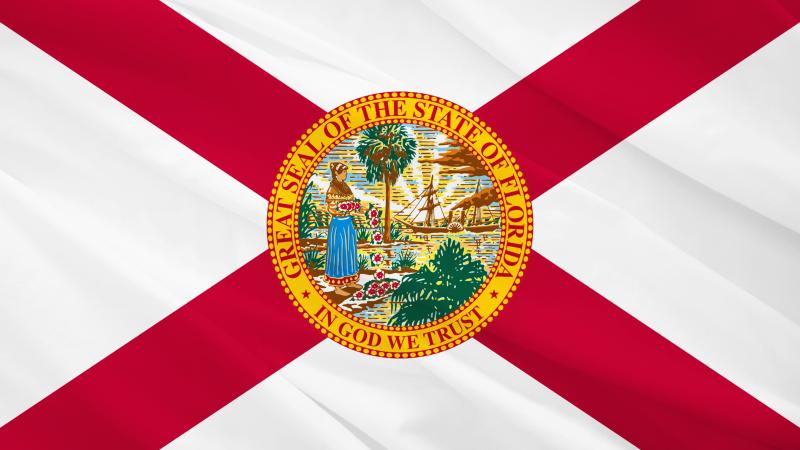California still counting ballots, raising concerns about election process
"California’s delay in counting votes is a feature rather than a bug for the Left’s election industrial complex," Jason Snead said.
The state of California continues to count ballots more than two weeks after Election Day, raising concerns about the state’s election process. As California takes weeks to tabulate ballots, two congressional races in the state remain undecided. Election integrity advocates explain that California should overhaul its election laws to ensure the quick and accurate tallying of votes.
The Golden State has had all-mail elections since 2020, where mail-in ballots are automatically sent to all registered voters. California has the most registered voters in the nation, at more than 22 million.
There are 315,705 ballots yet to be counted as of Friday morning, and 118,000 ballots that need to be cured for deficiencies. At least 16 million ballots were cast in the general election. The counties have until Dec. 3 to report their final election results, and the state will certify the results on Dec. 13.
There are still two congressional races in California that have yet to be called, according to The Associated Press. The makeup of the U.S. House of Representatives starting next year is currently 219 Republicans and 213 Democrats. There is also an uncalled congressional race in Iowa.
California Secretary of State Shirley Weber (D) explained part of the reason for the delay in counting ballots. "Much of our votes that come in are by mail, and as a result, that requires verification of the signature on the envelopes. And so we have to open the envelopes, we have to verify the signature and all of those things before we can actually accept that ballot," Weber told local Fox affiliate KTXL last week. "We have to make sure that that's the person who actually sent that ballot in."
Election integrity proponents, however, push back on the length of time it takes California to count ballots.
What's at stake?
Florida Gov. Ron DeSantis (R), whose state announced results on election night, posted on X on Wednesday about California’s delayed ballot counting. “California is still ‘counting’ votes — and there are two congressional races where the leads enjoyed by GOP incumbents have been either eliminated or dramatically reduced long after Election Day,” DeSantis wrote.
“It is possible that Republicans lose one or both of these seats — making the House majority razor thin. California’s election system is a disgrace and the state should follow Arizona’s lead, recognize the need for an overhaul and enact transparent reforms.”
Jason Snead, Executive Director of Honest Elections Project Action, told Just the News on Friday that there are several issues with California’s all-mail election system that lead to delayed results. “California’s delay in counting votes is a feature rather than a bug for the Left’s election industrial complex,” Snead said. “Between ballot trafficking, all mail voting, and a failure to require election officials to count votes quickly, massive delays in outcomes are inevitable.
“But extended delays in vote tallying hurt public trust in outcomes. The good news is, Florida has proven that states can quickly adapt their election policies to make it easy to vote and hard to cheat and have quick results on election day. The bad news is, California Democrats see a political advantage in their election policies, which is why they’re content to keep the status quo.”
Left-wing ballot harvesting
Snead detailed his observations in a Townhall op-ed last week on the specific issues with California’s election system.
“Mail-in ballots take longer to process and generally require more people to sort and tabulate them,” Snead wrote. “Officials must verify the voter’s information, check his signature against records, and verify he did not already vote elsewhere, all before a ballot can be counted. Voters can leave their ballots at any drop box or polling place statewide, adding even more time if ballots need to be forwarded to a voter’s home county."
“Ballots returned by mail can trickle in seven days late, making it impossible to know how many votes were even cast until a week after voting is over,” Snead continued. “And voters have until December 1—nearly four weeks after the election—to resolve, or ‘cure,’ problems with their ballots.”
He added that left-wing ballot harvesting groups benefit from California’s election laws.
“All they have to do is show up at the homes of targeted voters and collect the ballots they know are there,” Snead wrote.
“Activists can be paid to ‘assist’ an unlimited number of voters, take their ballots, and stuff them into drop boxes—all without supervision or safeguards that might slow them down. State leaders even went out of their way to ban voter ID when conservative Huntington Beach voted to adopt it. This isn’t about making it easy to vote, it’s about making it easy to harvest votes.”
Honest Elections Project released a report earlier this year on election reforms that states should implement, one of which is “Ensure prompt and accurate election results.”
There are a few procedures that must be followed to quickly and accurately obtain election results, according to the report.
“Once vote tallying begins, it should be required to continue until completion without interruption, absent an emergency that threatens officials’ safety. Officials should be permitted to begin processing absentee ballots prior to election day and prepare them for tabulation, subject to public observation by authorized persons and strict secrecy rules,” the report reads.
“Jurisdictions should explain and justify, in real time, tallying slowdowns that delay the posting of election results more than 24 hours beyond the close of polls. States should require ballots be returned by the close of polls on Election Day. If jurisdictions permit ballots to be received after election day, a regularly updated and timely tally of the number of 'not yet received' ballots should be made publicly accessible online.”














